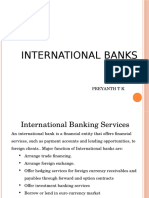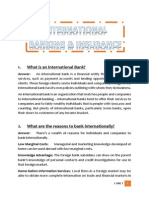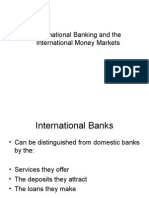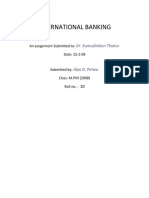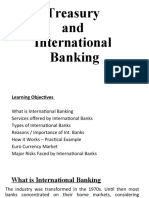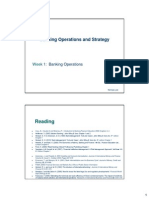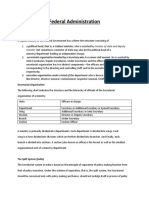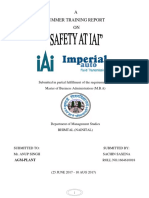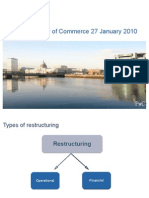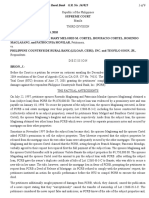0% found this document useful (0 votes)
140 views2 pagesIB Tutorial 7 Q1
International banks have several options to conduct business overseas:
Correspondent banks allow smaller foreign banks to conduct international business through a relationship with a larger bank. Representative offices promote a parent bank's services without providing credit. Foreign branches operate like local banks but are legally part of the parent bank. Subsidiary banks are locally incorporated but wholly owned by a foreign parent. Affiliate banks are partially owned by foreign parents. Offshore banking centers are countries with banking systems organized to serve external accounts beyond local needs, providing services like low taxes and bank secrecy.
Uploaded by
Kahseng WooCopyright
© © All Rights Reserved
We take content rights seriously. If you suspect this is your content, claim it here.
Available Formats
Download as DOCX, PDF, TXT or read online on Scribd
0% found this document useful (0 votes)
140 views2 pagesIB Tutorial 7 Q1
International banks have several options to conduct business overseas:
Correspondent banks allow smaller foreign banks to conduct international business through a relationship with a larger bank. Representative offices promote a parent bank's services without providing credit. Foreign branches operate like local banks but are legally part of the parent bank. Subsidiary banks are locally incorporated but wholly owned by a foreign parent. Affiliate banks are partially owned by foreign parents. Offshore banking centers are countries with banking systems organized to serve external accounts beyond local needs, providing services like low taxes and bank secrecy.
Uploaded by
Kahseng WooCopyright
© © All Rights Reserved
We take content rights seriously. If you suspect this is your content, claim it here.
Available Formats
Download as DOCX, PDF, TXT or read online on Scribd
/ 2




